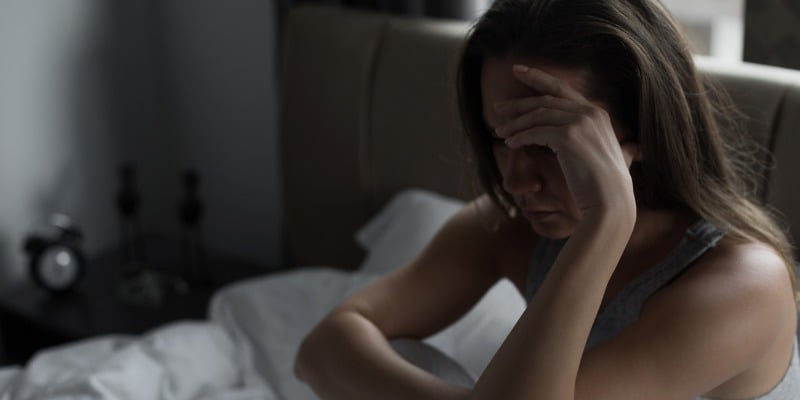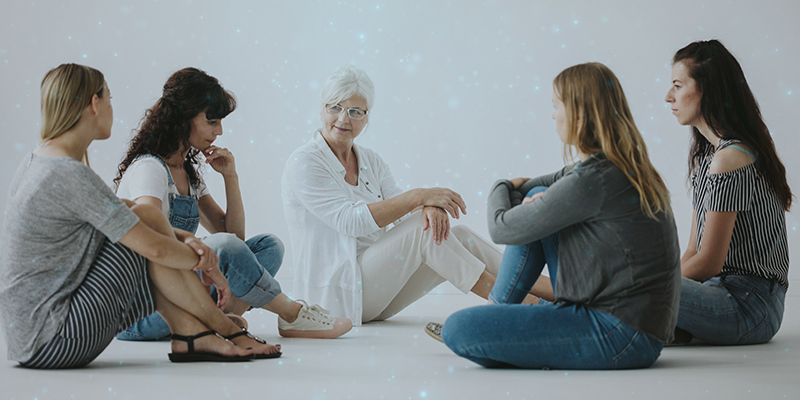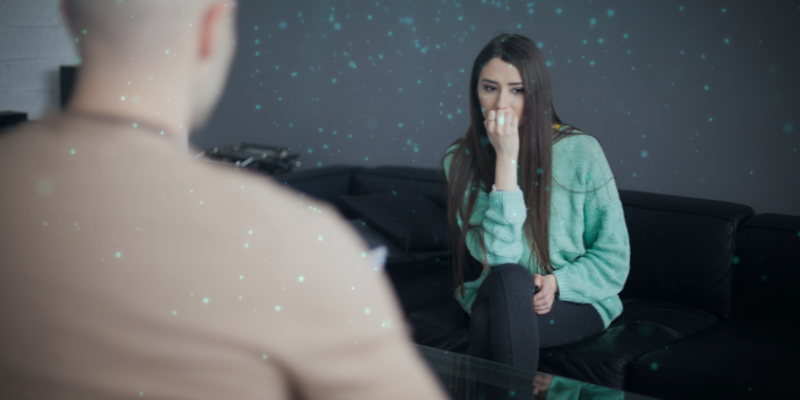
Sleep difficulties are very common in people with depression, and both issues can wreak havoc on your ability to perform at your best—whether it’s on the field, in the boardroom, or in the classroom. Did you know that about 75% of depressed people also struggle with symptoms of insomnia? Many aspects of sleep are linked to depression. How many of the following sleep issues do you have?
7 Sleep Issues Related to Depression
1. Going to bed early and getting out of bed late
Many people who are depressed want to sleep more, as it is considered an escape from their suffering. Many find it difficult to get out of bed in the morning due to reduced motivation and lack of energy, resulting in more time spent in bed trying to sleep. This worsens insomnia because the bed becomes associated with wakefulness and negative thoughts.
2. Waking up earlier than desired
Although early morning awakenings are more common in depressed people, they may also be due to simply being an “early bird” or “lark.” To know the difference, think about whether you were an early riser prior to the depression setting in.
3. Challenges faced by depressed people with strong “eveningness” tendencies
People who have a delayed sleep schedule (“eveningness” tendencies), in which they go to bed later at night, are more likely to have a lower mood in the morning and a better mood in the evening. So, they tend to delay their bedtime because they finally feel better in the evening, and they tend to postpone getting out of bed because they have a lower mood in the morning.
4. More negative thinking (dysfunctional beliefs)
This often means higher alertness in bed, which can lead to an increased effort to go to sleep, which leads to more wakefulness of the mind, which perpetuates the cycle of insomnia.
5. Obstructive sleep apnea (OSA)
Sleep apnea—which is characterized by snorting, gasping, or temporarily stopping breathing while sleeping—may be more prevalent among patients with insomnia and depression. One possibility for the connection may be because of depression-associated inactivity and weight gain, as excess weight and obesity are the most common causes of sleep apnea.
6. Problems quieting the mind at night
When repeated thoughts (ruminations) occur in bed at night, they will interfere with your sleep.
7. Failure to get out of bed when unable to sleep
When you can’t sleep, it’s a good idea to get up so you don’t associate the bed with sleeplessness. However, depressed people often fail to do this because they may have low energy and less motivation, and they already use the bed for negative thinking and as an escape from “the depressing real world” (the wish for sleep to provide an escape from emotional suffering).
When Depression Treatment Doesn’t Help Your Sleep
Surprisingly, many of these sleep problems do not resolve with psychotherapy or antidepressant medication. In fact, several antidepressants are known to contribute to sleep disruptions. Medications like bupropion and venlafaxine can be activating and keep you up at night. Common side effects of most antidepressants include a number of digestive problems, which could also affect sleep. Medications such as mirtazapine can cause weight gain and potentially worsen conditions like sleep apnea. Most antidepressants worsen or contribute to Restless Leg Syndrome, a condition that causes your legs to move involuntarily, making it difficult to get restful sleep. And most antidepressants that work on the neurotransmitter serotonin can worsen or contribute to dream enactment (REM sleep behavior disorder), thereby disrupting sleep.
In addition, when stimulants are used off-label for motivation and energy in depressed patients, they can cause insomnia. When bipolar depression is treated with medications, such as olanzapine and quetiapine, they can cause weight gain and worsen sleep apnea, which in turn causes sleep disruption.
Treat the Depression AND the Insomnia
In general, individuals with co-occurring depression and insomnia tend to have a more serious disability, greater severity of depression, and poorer depression outcomes than those without insomnia. Depressed people with disturbed sleep are also at increased risk for suicide and are more vulnerable to a recurrence of depression. This is why it’s so important to address both issues. If you’re struggling with both depression and sleep deprivation, be sure to have your insomnia diagnosed and treated in addition to treating the depression.
You can find many more common sleep saboteurs that compromise performance, in addition to solutions to optimize sleep, in Dr. Shane Creado’s book, Peak Sleep Performance for Athletes: The Cutting-edge Sleep Science That Will Guarantee a Competitive Advantage.
In “Peak Sleep Performance for Athletes: The Cutting-edge Sleep Science That Will Guarantee a Competitive Advantage” author Dr. Shane Creado, who is board-certified in both psychiatry and sleep medicine and is on the Board of Directors for the International Society for Sports Psychiatry, shares his unique sleep optimization program for athletes that he uses with his patients at Amen Clinics. Order your copy here.
If you or a loved one is looking for that competitive edge or is struggling with sleep problems or depression, Amen Clinics can help. Speak to a specialist today at 888-288-9834 or schedule a visit online.





I’ve never understood the concept of getting out of bed when one can’t sleep. If I do that, my mind wants to start my day, going to my desk or working in the kitchen. This normal activity mimics “morning” and so I never go back to bed to sleep.
Instead of having ANTs, I set a real-life small problem to solve while lying in bed (how to remodel the basement, what to buy for the garden, etc.), I become so bored that I fall asleep an hour or two or three later. If it’s too boring to work on in the day, it will put you to sleep at night. Plus, with so much time to consider small problems from all angles, I seem to make appropriate decisions.
Comment by millicent hughes — May 4, 2020 @ 2:50 AM
I don’t really sleep at night or a whole lot because of very Vivid and real feeling nightmares of being abused as a child. That is the sole purpose as to why I don’t sleep very much or at all until I just happened to pass out
Comment by Madylin Long — May 4, 2020 @ 2:58 AM
I have had insomnia since I was in my 20’s. I’m now 72. I take, Melatonin, GABA, Thianine, Magnesium, 5-HTP, calcium at night. In the morning I take 400 mg. Tyrosine , choline and inositol, B Complex and other multiple vitamins and minerals. Some nights when I don’t sleep, I take Zyrtec and or Fiorinal.
I am depressed because our 27 year old addicted bipolar son lives with us. His lifestyle is against everything we’ve taught him and believe in. Psychotherapy has not helped, nor has antidepressants.
Please make a recommendation. No, I’m not calling. I would appreciate one helpful recommendation.
Thank you.
Dee Schwartz
Comment by Dee Schwartz — May 4, 2020 @ 4:06 AM
This perfectly describes my son – So many sleep issues ..He tends to take his stimulant ( Vyvanse ) too late – there unable to fall asleep till wee hours of the morn – then will sleep till late into the afternoon . ugh so hard I beg him to establish a ” normal ” routine of sleep and productivity during the day ..Depression really does branch out to so many issues ..
Comment by Karen McKinley — May 4, 2020 @ 6:12 AM
Seems like anything I take for sleep, supplement or prescription, makes my bizarre/disturbing dreams worse. I don’t know what this says about my brain chemistry because none of my providers has an explanation. Anybody else experienced this or have a solution?
Comment by Clayton — May 4, 2020 @ 6:50 AM
I take Prozac 40 mg and 1 mg of Clonazapam at bedtime I dream bizarre dreams for example folks that have passed on corner me in a room and start beating and stabbing..Rape dreams and reliving hurricanes and tornadoes which I’ve never been in Doc said it was the Prozac but when I came off it was still happening so I think its the other drug
Comment by hazel A. Norwood — May 4, 2020 @ 7:16 AM
Hello Dee,
I am 60. Same storm, different boat. I haven’t tried everything but I am getting there. The downstroke between insomnia and depression, has caused a downgrade costing a conservative 2 million in earnings over my life time. I wasn’t sleeping well going back to high school it is a real bad thing. People literally have to get cancer to feel like we do in terms of consistent energy levels required to function. Recently I have improved quite a bit. This is what is working for me:
1) Magnesium Breakthrough from bioptimizersdotcom a 7 way magnesium supplement took about 2 months to kick in.
2) One heaping teaspoon of Essential Amino Acids in the morning along with 2.5 -5 grams of plain old Creatine Monohydrate. Repeat once or twice during the day.
3) K2 and D3 nearly a prevailing deficiency for most people Along with Magnesium.
4) A tablespoon of Kerry Gold grass fed butter and raw honey with a tablespoon of organic MCT oil 1-2 times a day.
5) Morning exercise before noon I go lighter these days as I crushed my body up through my 50’s training heavy not unlike a Navy SEAL maintenance regimen.
6) Hot/cold shower periodically using a gallon of water in the refrigerator for the cold part. Winter boots and shorts outside 10-20 minutes.
7) 4 Capsules of Coconut Charcoal in the later part of the day away from supplements and food.
8) Silymarin from NOW 2 caps 4 times a week.
9) NAC x4 from Jarrow 4 times a week.
10) Organic Spirulina and Chlorella per label instructions.
11) 10mg Melatonin time release from Natrol 1/2 to an hour + before bed
MY SOURCES: Ben Greenfield Fitness, Dave Asprey and Dr. Joseph Mercola.
I could do 5 pages on science behind it all but at least you have a start.
Here’s to feeling great and sleeping well-Roy
Comment by Roy — May 4, 2020 @ 8:24 AM
I have insomnia so I found a natural herb. The name is somnapure two at night, they really help.
Comment by Lois — May 4, 2020 @ 8:52 AM
I would say you haven’t found the right psyc doctor. Do some research and check their reviews. I went through bipolar for 62 years went to a lot of doctors took a lot of different medications. I finally found the right doctor and the medication really works! Good luck I know how your son feels!
Comment by Lois — May 4, 2020 @ 8:58 AM
Hello Dee, thank you for reaching out.
Our recommendations for sleep are this online course, and our brain-directed supplement recommended by Dr. Daniel Amen
Best, Dr. Shane Creado
Comment by Amen Clinics — May 4, 2020 @ 10:23 AM
Hello Millicent, thank you for reaching out.
The concept of getting out of bed is more than just getting out of bed. It is:
1. getting out of bed when awake (thereby avoiding pairing the bed with wakefulness – classical conditioning)
2. not doing anything activating or work related (you give the insomnia a function, and the brain will wake you up each night to be ‘productive’)
3. doing something boring in a designated comfortable area (to feel sleepy),
4. getting back to the bed when sleepy (to pair the bed with the sensation of sleepiness)
Best, Dr. Shane Creado
Comment by Amen Clinics — May 4, 2020 @ 10:17 AM
Hello Madylin, thank you for reaching out.
PTSD and insomnia need to be treated separately. If your brain is in danger-mode, you will not sleep. Sleeping is the most vulnerable thing we do. In my book, there is a whole section on how PTSD disrupts sleep. There are certain treatments to help with both. Here is a link: https://www.amazon.com/Peak-Sleep-Performance-Athletes-Cutting-edge-ebook/dp/B085YFP9YW/.
Best, Dr. Shane Creado
Comment by Amen Clinics — May 4, 2020 @ 2:47 PM
Hello Clayton, thank you for reaching out.
1. Very few psychiatrists have also specialized in sleep medicine.
2. Certain medications increase dream sleep, which can worsen nightmares.
3. Also, if a medication allows you to get more sleep, your brain will make up for the preceding sleep deprivation, but actually catching up on REM or dream sleep. It is called REM rebound.
4. Most anti-depressants can interfere with the paralysis of muscles when you are in REM sleep, and can contribute to you acting out your dreams.
5. I also do dream analysis for certain patients. https://youtu.be/Onr_jULdCjs
Best, Dr. Shane Creado
Comment by Amen Clinics — May 4, 2020 @ 2:49 PM
I have never heard that anti depressants can interfere with the normal body paralysis during REM sleep. Do you have any resources I could look at? Thank you. I at out my dreams and have jumped out of my bed a number of times hitting the night table.
Comment by Sheryl — May 4, 2020 @ 4:54 PM
Yes, here is a link: https://www.ncbi.nlm.nih.gov/books/NBK555928/#article-42334.s2
Comment by Amen Clinics — May 5, 2020 @ 6:42 PM
I believe that emerging research suggests that sleep issues predict depression more than depression predicts sleep issues.
We are even questioning some types of adhd as more likely a sleep disorder.
The more we look at this I believe we will find that the pathway to the disorders is through disrupted sleep and agree that it is vital to start treating sleep and making it an important area of focus when deal g with mental health
Comment by Ryan — May 5, 2020 @ 6:55 PM
All these Dr. Amen articles are so surface-level generic and have yet to tell me something I didn’t already know or that I can make use of.
My desire is not to be negative or overly critical… but I have yet to read something that has added any real value or new knowledge.
It’d be nice if to see some REAL examples of protocols or methods that are being used with success.
Your goal is to help other’s right? yet…
Seems all articles on this site give little to no usable info and are designed to acquire new patients.
I’m not saying you should give away your secrets for free but, if you are truly dedicated to improving the lives of others, providing some REAl examples of protocols that have worked for patients would be of great value…
AND would actually increase the likelihood of acquiring new patients.
Comment by Mike — May 8, 2020 @ 3:00 PM
Ive struggled with insomnia (difficulty staying asleep) since I started perimenopause (45). I am now 54 and still struggle but have found relief thanks to following Dr. Amen and his wife. I use Magnesium, Gabba, L-Thianine, and take wellbutrin since my father passed away a year ago. I also attempt to reduce sugars and processed foods. I would love feedback about the use of medical marijuana for insomnia. I use it occasionally and use a hybrid of Idica for relaxation and joint pain. I am concerned about the brain/cognitive impact for use over time. Thank you!
Comment by Lori Teeter — August 4, 2023 @ 5:55 AM
mind goes when trying to sleep and hate getting up to worry and anxiety in day
Comment by Carol Glospie — August 4, 2023 @ 7:30 AM
In defense of Dr Amen and Amen clinics, he is practically giving away his information, they are available on PBS Festivals as fundraisers for PBS , very affordable as monthly payments and you support Public Broadcasting stations. I’ve had sleep problems and chronic emotional issues and many more and have used alternatives and groups, and the bipolar and depression meds and never found real relief until I bit the bullet and worked his course on overcoming depression and have put together from his information and these little articles and signing up for his free classes and even went to a free program in Dallas, where Dr Amen gave a talk The End of Mental illness. Which has lead me to figure out the I had 3 head injuries before I was four years old! Because these things have disabled me and I can’t afford to do the Brain Spect imaging, his generosity has made it possible for me to find ways to heal and find resolution. The hardest thing to get past is our own minds because we don’t know what it is that we are missing and we need guidance to teach us how to put it back. It’s on ongoing process and a lot of hard work but very well worth the effort . Only wish I had found him much earlier because I went with his course only after I started seeing signs of Alzheimer’s . Dr Amen is doing an amazing work for so many people, true the imaging is not paid by insurance and is not affordable for many that need it but he is working to make it accessible to more people. He really has his heart in it and was asking as his talk, how do I make spect imaging affordable because insurance doesn’t pay for it!! I could only tell him Thank you!!
Comment by Julie Tintinger — August 6, 2023 @ 7:08 AM